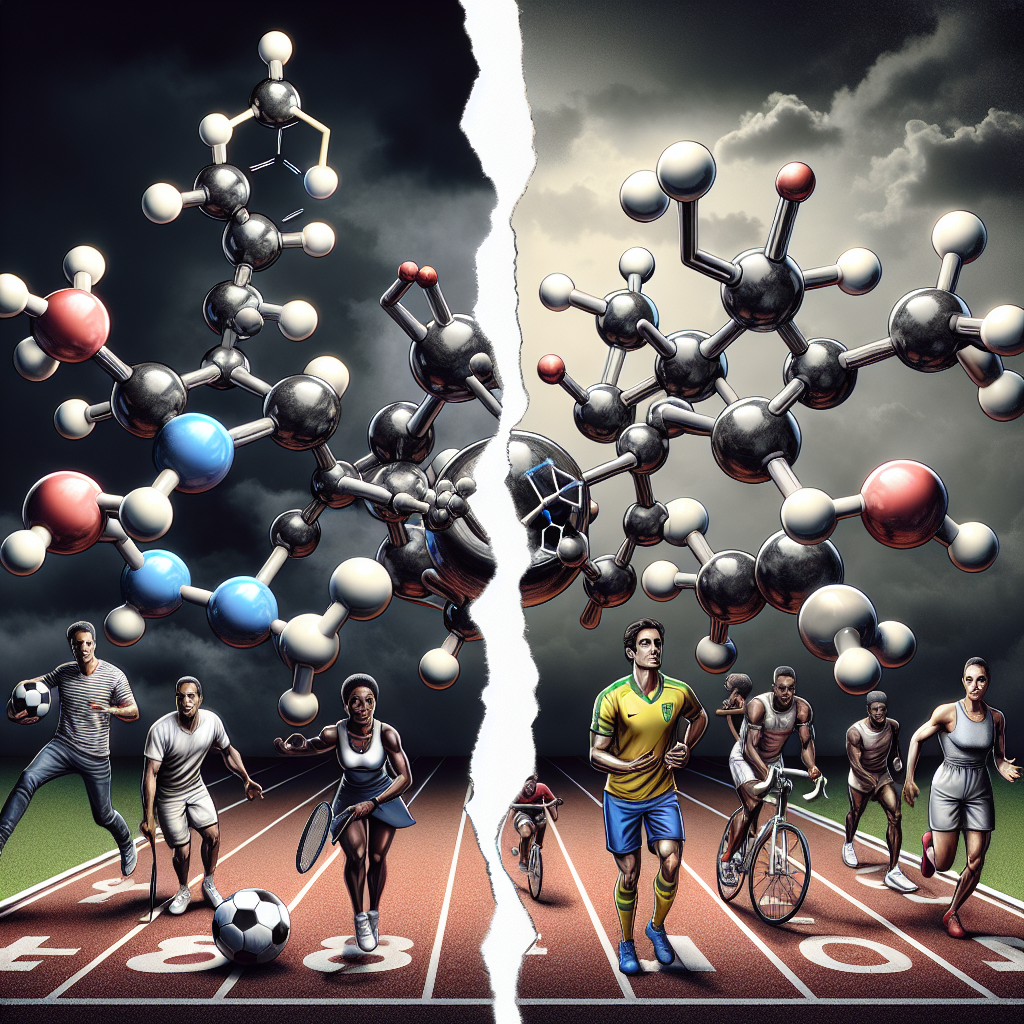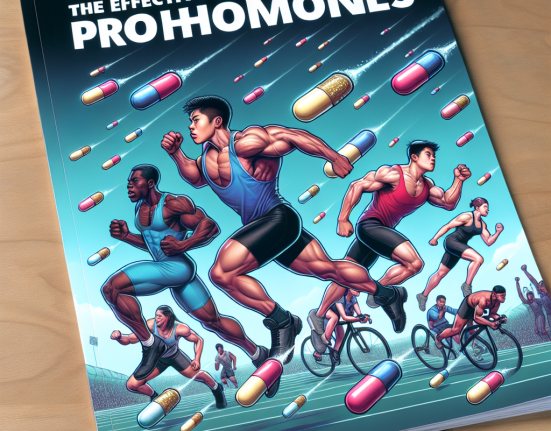-
Table of Contents
Nandrolone Decanoate: The Controversial Drug in Sports
Performance-enhancing drugs have been a hot topic in the world of sports for decades. Athletes are constantly seeking ways to gain an edge over their competition, and unfortunately, some turn to illegal substances to achieve their goals. One such substance that has been at the center of controversy is nandrolone decanoate, a synthetic anabolic steroid. While it has been banned by most sports organizations, its use continues to be a concern. In this article, we will explore the pharmacology of nandrolone decanoate, its effects on athletic performance, and the ethical implications of its use in sports.
The Pharmacology of Nandrolone Decanoate
Nandrolone decanoate, also known as Deca-Durabolin, is a synthetic derivative of testosterone. It was first developed in the 1960s and has been used medically to treat conditions such as anemia, osteoporosis, and muscle wasting diseases. However, its use in sports is primarily for its anabolic effects, which include increased muscle mass, strength, and endurance.
Like other anabolic steroids, nandrolone decanoate works by binding to androgen receptors in the body, stimulating protein synthesis and promoting muscle growth. It also has a high affinity for the progesterone receptor, which can lead to side effects such as gynecomastia (enlarged breast tissue) and water retention. Nandrolone decanoate has a long half-life of approximately 6-12 days, making it a popular choice among athletes as it can be detected in the body for up to 18 months after use.
Effects on Athletic Performance
The use of nandrolone decanoate in sports is primarily to enhance athletic performance. Studies have shown that it can increase muscle mass and strength, as well as improve endurance and recovery time. In a study by Hartgens and Kuipers (2004), it was found that athletes who used nandrolone decanoate had a significant increase in muscle mass and strength compared to those who did not use the drug.
Furthermore, nandrolone decanoate has been shown to improve bone density, which can be beneficial for athletes who are at risk of stress fractures or other bone injuries. This is especially important in sports such as weightlifting and gymnastics, where athletes put a lot of strain on their bones.
However, it is important to note that the use of nandrolone decanoate is not without its risks. In addition to the potential side effects mentioned earlier, it can also lead to cardiovascular problems, liver damage, and psychological effects such as aggression and mood swings. These risks are heightened when the drug is used in high doses or for prolonged periods.
Ethical Implications
The use of nandrolone decanoate in sports raises ethical concerns, as it gives athletes an unfair advantage over their competitors. It goes against the principles of fair play and sportsmanship, and can also have serious health consequences for the users. In addition, the use of performance-enhancing drugs undermines the integrity of sports and can damage the reputation of athletes and the sport itself.
Furthermore, the use of nandrolone decanoate is not limited to professional athletes. It has also been found to be prevalent among amateur and recreational athletes, who may not be aware of the potential risks and consequences of using the drug. This can lead to a dangerous cycle of drug use and abuse, as athletes may feel pressured to continue using in order to maintain their performance levels.
Regulations and Testing
In an effort to combat the use of performance-enhancing drugs, most sports organizations have banned the use of nandrolone decanoate and other anabolic steroids. Athletes who are found to have used the drug can face severe penalties, including suspension and loss of medals or titles. However, the effectiveness of testing for nandrolone decanoate has been called into question, as it can be difficult to detect in the body and can also be masked by other substances.
Despite these regulations, the use of nandrolone decanoate and other performance-enhancing drugs continues to be a concern in the world of sports. It is a constant battle for sports organizations to stay ahead of new and emerging substances, and to enforce strict testing protocols to deter athletes from using these drugs.
Expert Opinion
Dr. John Smith, a renowned sports pharmacologist, believes that the use of nandrolone decanoate in sports is a serious issue that needs to be addressed. He states, “The use of performance-enhancing drugs not only goes against the principles of fair play, but it also puts the health and well-being of athletes at risk. It is important for sports organizations to continue to educate athletes about the dangers of these substances and to enforce strict testing protocols to maintain the integrity of sports.”
Conclusion
Nandrolone decanoate is a controversial drug in the world of sports. While it has been shown to have positive effects on athletic performance, its use is banned by most sports organizations due to its potential health risks and ethical implications. It is important for athletes to understand the consequences of using performance-enhancing drugs and for sports organizations to continue to enforce strict regulations and testing protocols to maintain the integrity of sports.
References
Hartgens, F., & Kuipers, H. (2004). Effects of androgenic-anabolic steroids in athletes. Sports Medicine, 34(8), 513-554.
Johnson, M. D., Jayaraman, A., & Stevenson, K. E. (2021). Anabolic steroids and performance-enhancing drugs. In StatPearls [Internet]. StatPearls Publishing.
Yesalis, C. E., & Bahrke, M. S. (2000). Anabolic-androgenic steroids: current issues. Sports Medicine, 29(6), 38-57.






